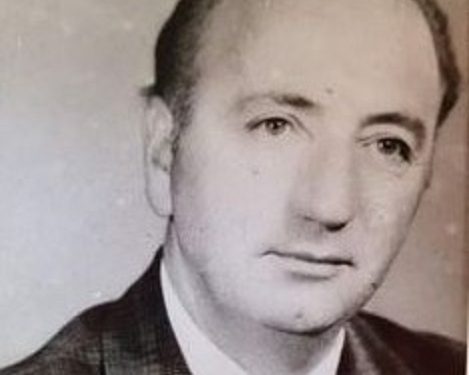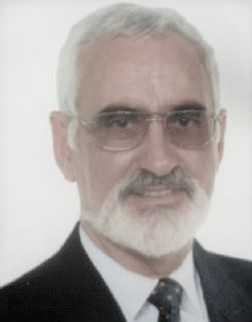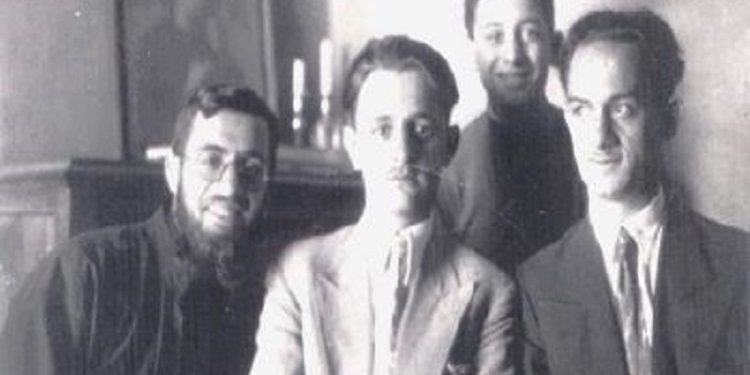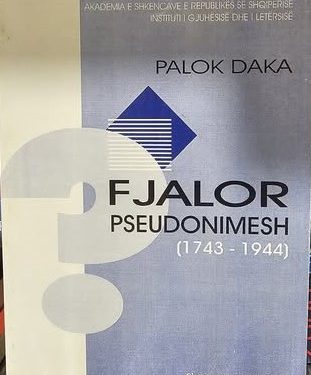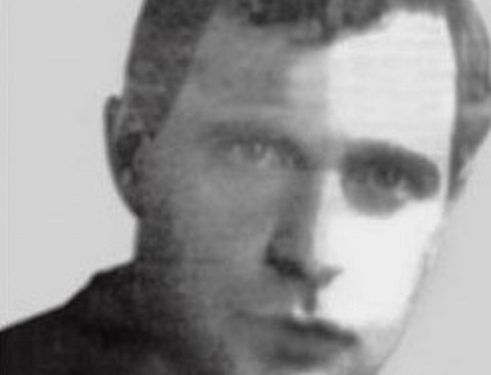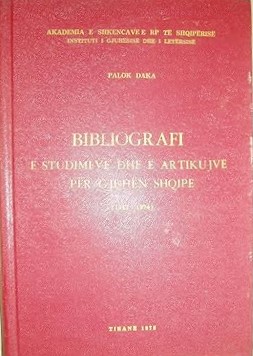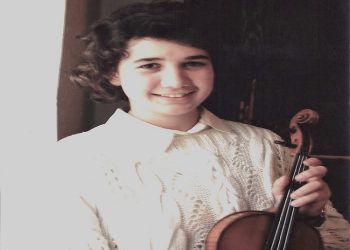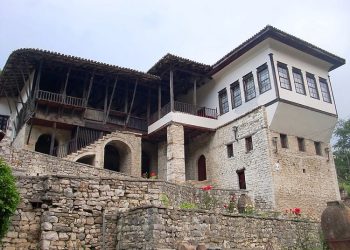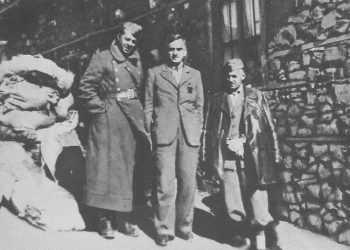By Prof. Assoc. Dr. Thanas L. GJIKA
Memorie.al / During my years of work at the Institute of Linguistics and Literature of the Academy of Sciences, I had the opportunity to meet Palok Daka, one of the most passionate scientific staff members, who truly worked as much as four people, without ever complaining. He was born in Shkodër in 1925, into a mountain family that had descended from the village of Temal in Breglumi i Shalës. His ancestors, like most of the people of Shala, had fought against the foreign Ottoman occupier and neighboring chauvinists. In the first post-war years, Paloka settled in Tirana, where he worked devotedly all his life in the field of the Albanian language. The life and work of this man is a living testament to the fact that to become a successful researcher, love for work, willpower, passion, systematic effort, dedication to science and self-taught study are more important than schooling.
However, due to the politicization in Albania during the time of the dictatorship, the values of people who were not servile to the state party were minimized or left in the shadows. Thus, Paloka was allowed to work, but was never launched as a distinguished scientific employee, was not given any scientific title or degree, and was never sent abroad to Albanological centers for archival research, as required by the work to which he was so devoted. In 1979, at the insistence of Remzi Përnaska, Party Secretary of the Institute of Linguistics and Literature, Paloka was sent for the first and last time to Kosovo to collect Albanian words, after he had conducted such expeditions in almost every village in Albania.
Palok Daka had completed his higher education in Albanian Language and Literature in Tirana through correspondence. He had self-taught several foreign languages, especially German, French, Italian, Serbian, and Russian. His reading in these languages set him apart from his colleagues. He never asked to learn something from us; only we asked him to learn about various issues and events. Through extensive reading and listening to foreign radios, he had become a source of valuable information and knowledge. Having a coffee with Paloka was an hour of work, because during conversations with him, you always learned valuable things.
His desire was to drink coffee with only one friend, not two, three, or four. When I once asked him to bring other friends to make the conversation more interesting, he told me: “When you talk to one person, you are not afraid of being spied on; after all, even if he spies on you, you can deny the accusation because another witness is missing.” In the years 1986–’87, during coffee, Paloka told me: “Study topics that serve the all-Albanian cause are long-lasting topics, while topics that only serve the time of socialism are short-lived, they will quickly become obsolete. You, who study the literature of the National Renaissance, are lucky compared to those who study today’s socialist realism literature. You can state your conclusions without distorting them up to a point, while they must unify their conclusions in every aspect with the party’s politics…”!
Paloka had a healthy body; he looked exactly like a piece of mountain oak. He would sit down to work in front of a small typewriter he had bought himself and did not know how to get up. Often in winter, when we were all freezing and wasting time lighting wood stoves, he would sit down in front of the typewriter without lighting the fire and become engrossed in his work, forgetting even to go to the restroom for personal needs. Several times, when I invited him for coffee, he would say: “Thank you for coming and interrupting my work; the doctor advised me to get up and move for 10-15 minutes every two or three hours, but I get lost in my work…”!
Perhaps this habit contributed to the development of prostate issues, which became the main cause of his passing, at a time when he was at the peak of his energy as a researcher, on December 15, 1987. He passed away at the age of 62, 4–5 years before the dictatorship crumbled, something he was hoping for, unlike the rest of us, who thought that the Albanian dictatorship could not be destroyed…!
Paloka never changed his job; where he first set foot; there he gave his last breath. Since he knew several foreign languages, the young Palok was accepted as a secretary at the Institute of Sciences as soon as this institute was created in 1949. Very quickly, without leaving his job, he completed the 2-year Institute by correspondence and then the Faculty of History and Philology for Albanian Language and Literature. All his life, he worked with passion in the linguistics sector, alongside professors Eqerem Çabej, Aleksandër Xhuvani, and Androkli Kostallari, from whom he was never scolded for not fulfilling his plan or for even the slightest absence.
When Paloka spoke with the director, the deputy director, or the party secretary of the Institute of Linguistics and Literature, I noticed that he spoke with them the same way as with other colleagues, without any signs of servility or special emotion. This prompted me to ask him: “Palok, you don’t get emotional in front of the Institute’s officials?” “Emotions towards superiors are an expression of fear; I am not afraid of anyone,” he told me, “because I have not been involved in anything bad, and I have achieved everything through my own work.”
These were the two certain “pillars” of Palok Daka: not being involved with evil and dedicated work. Therefore, even though he had not received qualification abroad and was not a favorite of the party, he went much further than most other employees, even those who received scientific titles and degrees. With his passionate work, Paloka managed to be one of the distinguished co-authors of the Institute’s two major works, ‘Fjalori i Gjuhës së Sotme Shqipe’ (Dictionary of the Modern Albanian Language) (1980) and ‘Fjalori i Shqipes së Sotme’ (Dictionary of Modern Albanian) (1984).
The work of collecting Albanian words from books, newspapers, and magazines, and in the field, going village by village, along with the work of compiling the dictionary, was the job for which he was paid as a scientific employee. But unlike other employees, he also worked on compiling other works. These were his “extra-plan” works; the works that made him stand out among his colleagues. The Institute paid him ridiculous honoraria for this colossal work, which if planned by the scientific staff, the state would have had to pay not one, but four or five scientific employees.
Although they knew his worth, the leaders of the Institute of Linguistics and Literature did not give him any scientific title or degree; they never sent him abroad for qualification, to give lectures or presentations, or to conduct archival research in the Albanological centers of Europe. They did not even bother to send him abroad when he had a health need to operate on his prostate cancer, to prolong his life, which they knew he would dedicate to scientific work.
“If I were not useful,” he confided to me during one of the last visits I made to him in the hospital, “the leadership of the Academy of Sciences would have retired me, but they know how much I work and how much the Institute needs me. I don’t understand why they did not respond to the request to send me abroad for surgery…”?!
He said these words, looking up at the trees, as if complaining to God. The white of his eye moistened and shone. Lowering his head, he added: “I am frustrated that I will leave as orphans not only my young daughter but also several unpublished works.” Palok Daka made a significant contribution to several fields of Albanian linguistics. In addition to his work as a lexicographer, collecting and explaining Albanian words, he worked very diligently on opening up several new fields, such as the scientific bibliography of Albanian linguistics, onomastics, the bibliography of the Albanian press, the dictionary of pseudonyms of authors before the Second World War, etc.
During the work of collecting written and spoken Albanian words, he carefully gleaned and collected place names and people’s names. This work led him to the creation of the card catalog of Albanian onomastics. His love for the Albanian world prompted this patriot to think and work on purifying foreign names in Albanian anthroponymy. This goal was crowned in 1969 with the compilation and publication of a glossary of human names of Illyrian-Albanian origin.
Initially, this work was not properly appreciated, and Paloka was even reprimanded, but he knew how to defend his work on a scientific level and to republish it more completely in the magazine ‘Vatra e Kulturës’ No. 1, 1972. Meanwhile, life itself was showing that Paloka was right; most parents in all of Albania, as well as in the former Yugoslavia, were seeking to name their children with the names from Paloka’s dictionary.
When it was seen that this work was opening a new era in Albanian anthroponymy, it was requested that the dictionary be enriched and republished, but this time adding another co-author, because Palok Daka should not take the glory of this work alone. Thus, the Dictionary of People’s Names was published in 1982 with added material and co-authorship, even though no one had helped him with the compilation of the anthroponymy card catalog, and no one except him had written scientific articles for the theoretical treatment of the problem of Albanian proper names.
This tireless worker also cultivated other extra-plan fields, where parasitic growths could not attach themselves. Such was the field of the scientific bibliography of the Albanian language. With continuous publications in the journal ‘Studime Filologjike’ on the bibliography of the Albanian language, Paloka became a world scientific authority. He crowned this very valuable work with the publication of a series of very important works published by the Academy of Sciences, such as ‘Bibliografi e Studimeve dhe e Artikujve për Gjuhën Shqipe’ (Bibliography of Studies and Articles on the Albanian Language) (1945-1974), 361 pages, Tirana 1975, ‘Bibliografi Retrospektive e Gjuhësisë dhe e Onomastikës Shqiptare’ (Retrospective Bibliography of Albanian Linguistics and Onomastics) – 1879-1944, in three volumes, 926 pages, Tirana 1984, etc.
The systematization of bibliographic data for the Albanian language is a work that never ends, as the publication of articles and studies on this language itself does not end. Consequently, Paloka’s work for the registration and systematization of bibliographic data for the Albanian language will also never end. It must be continued by present and future employees, as it is a very useful work for researchers of the Albanian language and, on a broader level, for all Albanologists and Balkanologists. In the future, Palok Daka’s bibliographic works will be republished, supplemented with new data for articles published after the year he left his work.
This was the case when, within the framework of the 100th anniversary of the Congress of Monastir, a bibliographic publication on the history of the Albanian language alphabet was made. Mr. M. Gjana further pursued Paloka’s work and published the work ‘Për Historinë e Alfabetit të Gjuhës Shqipe’ (For the History of the Albanian Language Alphabet) (1844-2008), 250 pages, Tirana 2008. On this occasion, we express the wish that other bibliographic works of Paloka be further enriched and republished, supplemented up to the present day, as such bibliographies greatly assist researchers of the Albanian language wherever they work.
Another field where Paloka made his valuable contribution is the bibliography of the Albanian press and the clarification of the pseudonyms of various authors who wrote in Albanian until 1944. Only a worker with great passion could collect data from newspapers and works published around the world and clarify which Albanian author was hidden behind this or that false name (pseudonym). In the early ’70s, Paloka published a series of bibliographic writings in the magazine ‘Studime Filologjike’ with the names of Albanian press organs, the place and time of publication, who was the editor-in-chief, publisher, with many explanatory notes, which also explained many pseudonyms of authors who had written in the press of the past.
His wife was interested in publishing this work after Paloka’s death and managed to publish it as a separate book, titled ‘Fjalor Pseudonimesh’ (Dictionary of Pseudonyms) (1743-1944), Tirana 1998, 187 pages. Prof. Hamit Boriçi, based on this work and making the relevant additions for the years 1945-2000, compiled his work ‘Fjalor i Gazetarëve Shqiptarë’ (Dictionary of Albanian Journalists). With his colossal and qualified work, Palok Daka must be considered the best bibliographer of Albanian linguistics. He not only raised this field of Albanology to new scientific levels but also successfully led it for more than a quarter of a century, work for which he was not given any scientific degree or title, even though he deserved the high title of professor.
In our days, even though the computer has greatly eased the work of registering bibliographic data, Albanology still does not have a Palok Daka, because people who know foreign languages cannot sacrifice themselves to compile bibliographies – work that serves others, while it consumes the author’s time and prevents him from engaging directly in study work. You could benefit greatly from such a hardworking and meditative person as Paloka. Lucky are I and all those who had him as a friend and colleague in those difficult times. He radiated a will for work, honesty, and manly character. His manliness was frequently displayed. I will recall only one instance during the meetings organized by the so-called ‘Workers’ Control’ to make drastic cuts in the number of scientific staff at our institute.
After the envoys of the Party Committee spoke, none of us dared to support the Institute’s director, Prof. Kostallari, who, for the sake of truth, must be said to have bravely and with scientific arguments defended the existing number of scientific staff. All of us present were scared and keeping silent, when Paloka got up and said: “Every building is designed and built according to the functions it will perform. An 8-year school building cannot be built with less than eight classrooms, a teachers’ room, a physics cabinet, a chemistry cabinet, a sports hall, and several other annexes. Our Institute cannot carry out the scientific tasks assigned to it without having the scientific sectors it has and without having the scientific personnel it has. This institute is the main institute of Albanology, and Albanological sciences must be developed with priority in Albania. Our Institute is a center for scientific production, not a bureaucratic-administrative center. Cutting scientific staff in this institute means reducing scientific production at a time when there are many individuals and study centers outside that slander our historical, linguistic, cultural, and other values.” After these two courageous discussions, some other discussants also gained the courage to defend the scientific staff, and the regional party committee decided to reduce the number of people it wanted to cut and rotate.
Some Sayings of Palok Daka
Paloka was not only a tireless worker but also a profound judge of life. During conversations with him, I benefited, as did many other colleagues. Regarding religious beliefs, he was an atheist, admiring Darwin’s theory, which he formulated simply: “We are part of the natural cycle; the cow eats the grass, man drinks the cow’s milk and eats its meat, after death man becomes grass, which the cow eats…! The taste of eating and sexual pleasure is nothing but nature’s tricks for the continuation of life.”
Speaking about a colleague of ours who was servile to the bosses and always stayed close to them, Paloka said: “The pumpkin cannot stand without support because it is a climbing plant.” When a colleague of ours sought to become a party member, Paloka told me: “Joining the party is like gambling; you might win a few times, but most often you lose.” In 1978, when the party leadership broke relations with China, Paloka predicted the economic difficulties we would experience: “From now on, we will have to tighten our belts, beyond the last hole.”
We were talking about a colleague of ours whom we suspected served as an informer for the State Security. Paloka clarified: “He who becomes an informer for the Security of his own free will is a bad person; he who is forced into it is unfortunate, but he can preserve his honor by protecting his friends as much as he can. Having the power to do harm and choosing not to is manliness.” Speaking about the party secretaries, Paloka would say: “He who has the power to do good and does not, is a vile person; our Institute’s last two secretaries are good men.”
He valued the linguists J. Gjinari and R. Përnaska, party secretaries at the institute, for not escalating the class struggle and for protecting the scientific staff. Palok Daka is one of those scientific and social values that we do not have in abundance, so we should not leave them in the shadows as we have done until today, because we might lose them forever. Through recognizing and appreciating them, the process of the formation and consolidation of our national culture and morality is aided. / Memorie.al




